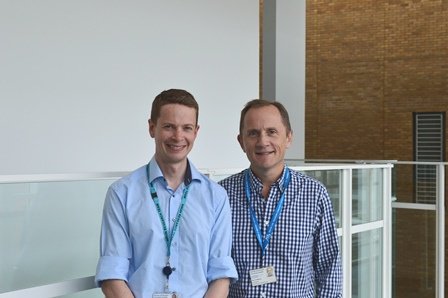Academic Obstetrics & Gynaecology in the East of England

Significant numbers of O&G trainees nationally undertake research during their training.
The opportunity to perform independent research can significantly enhance personal development, create valuable transferable skills, and open new career opportunities.
We want to encourage trainees in doing research, and to help them find it interesting, enjoyable, and useful.
Trainees can undertake academic research via two separate routes:
By going ‘out of programme’ for research (OOPR)
By undertaking integrated clinical and academic training
Both of these routes are available in the East of England.
Current and past trainees have successfully completed these programmes, and have been supported by the Deanery to achieve their research aims.
For further information about academic training in the East of England please contact the Associate Training Programme Director (ATPD) for Academic Training - Dr Catherine Aiken
Out of programme research (OOPR)
-
Be funded for the duration of the project
-
Have ethical approval (or a reasonable expectation of approval being granted within a suitable timescale)
-
Include measurable personal achievement outcomes (for example a PhD, MD, MPhil or specified primary research papers)
-
Have a robust supervisory plan from an established academic supervisor
-
Not involve an excessive clinical commitment
Integrated clinical and academic training
-
ACF: these posts are available mainly at ST1-3 level, last for three years, and include nine months of dedicated research time
-
ACL: these posts are available mainly at post-membership level, last for four years, and include two years of dedicated research time
Academic opportunities for trainees not in a dedicated research post
-
The RCOG academic meeting
-
The RCOG trainee conference
-
The RCOG world congress (held every other year in the UK)